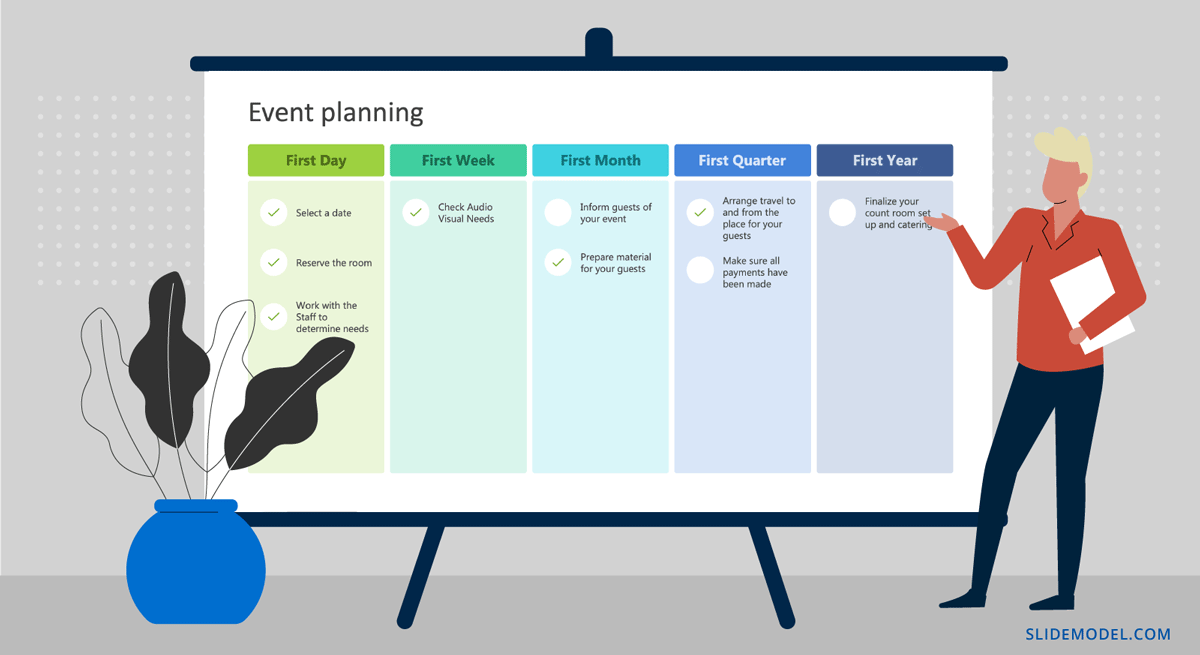Step To Implement The Corporate Event

Implementing a corporate event involves careful planning and execution.
Define Objectives and Scope
Understand why you are holding the event,Clarify what you want to achieve, Decide on the scale and scope of the event.

Assemble a Planning Team
Assign roles and responsibilities,Schedule regular meetings to track progress and address issues. Clearly define each member’s responsibilities and tasks

Develop a Budget
Include venue, catering, decorations, entertainment, and any other expenses.Track expenditures to ensure you stay within budget.Choose a venue that fits your event’s size and needs, and secure the booking.

Create an Event Plan
Outline the event schedule, including sessions, speakers, and breaks. Plan for setup, AV equipment, catering, transportation, and other necessities.

Secure Vendors and Services
Arrange food and beverage services.Book any entertainment or speakers.Develop a marketing plan using email, social media, and other channels.Distribute invitations or registration links to your target audience.

Design and Send Invitations
Compile a list of invitees and their contact details.Design and send out invitations, either digitally or in print, including RSVP instructions.

Promote the Event
CPrepare promotional materials such as brochures, banners, and event programs.Create a marketing plan to generate buzz (e.g., social media, email campaigns, press releases).

Execute the Event
Stick to the event schedule and ensure all activities run smoothly.Address any issues promptly to avoid disruptions.

Follow-Up
Send thank-you notes or emails to guests, speakers, and sponsors.Prepare a report summarizing the event’s outcomes and performance against the goals.

Evaluate Success
Evaluate the success of the event based on feedback, attendance, and other key metrics.Document lessons learned and best practices for future events.

Conclusion
Implementing a corporate event requires careful planning and execution to achieve the desired outcomes. By defining clear objectives, establishing a budget, and assembling a dedicated planning team, you lay the groundwork for a successful event. Selecting the right date and venue, developing a detailed agenda, and managing logistics effectively are crucial for smooth operation.
Related Blogs
Store Branding Secrets: How to Design a Winning Store Branding Strategy
Crafting a compelling and cohesive brand identity is essential for any successful retail business.This presentation will guide you through the key elements of store branding, from defining your brand's positioning to designing an immersive in-store experience.



